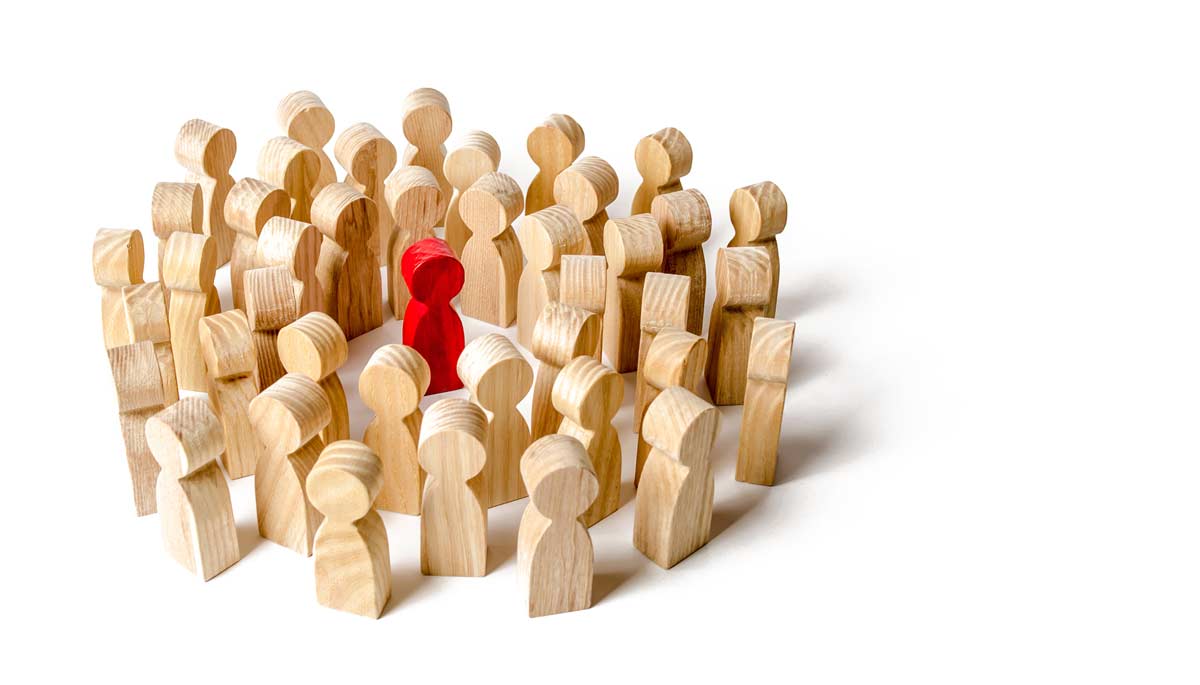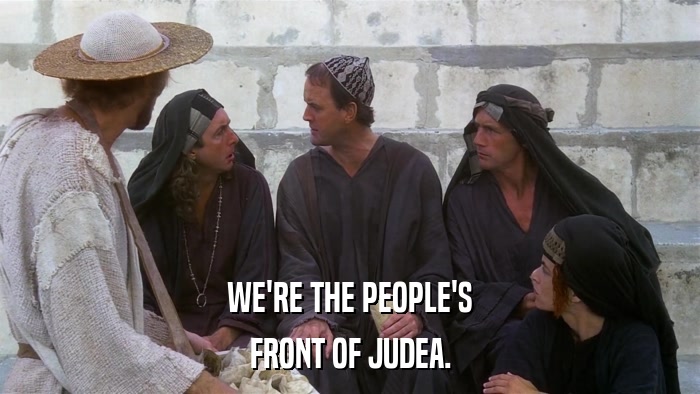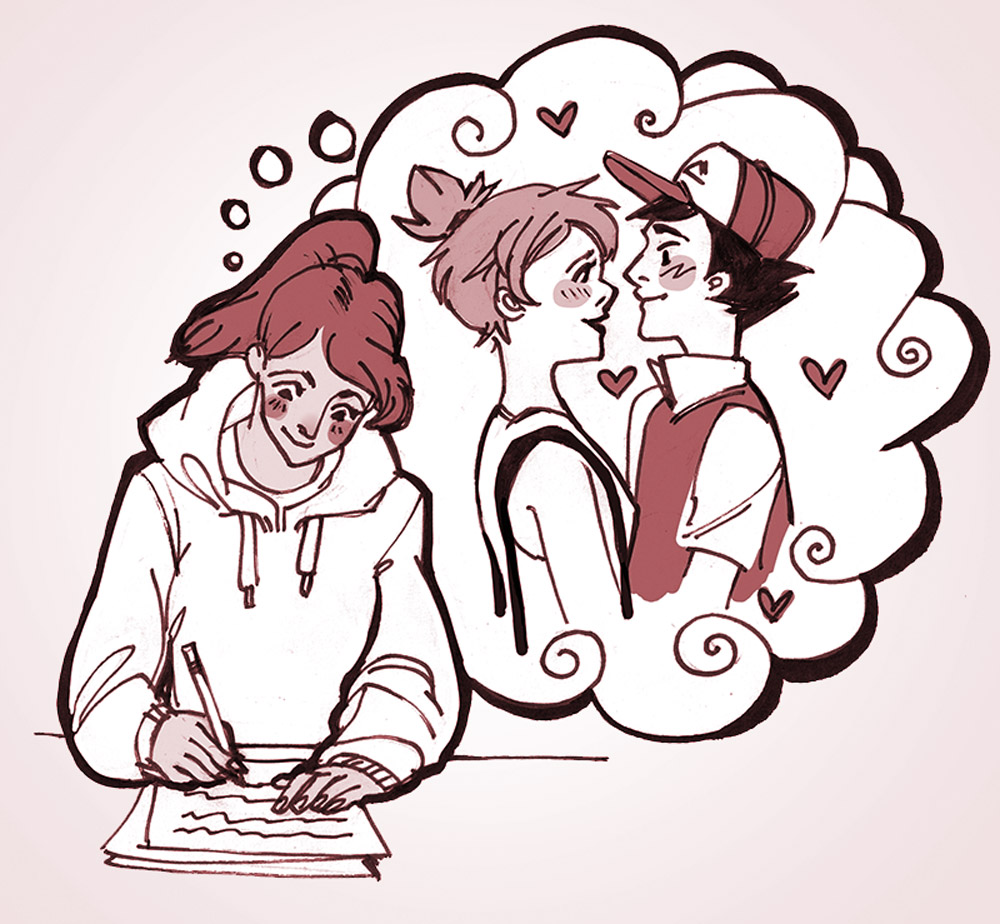Thinking is difficult, therefore let the herd pronounce judgment!
—Carl Jung, Civilization in Transition – Volume 10
Recently, a user on Quora asked a question about why people are so prone to judging others, even those they don’t know.
And the truth is, there isn’t one reason. There are lots of them, including Carl Jung’s…and one that I’ve been chewing on lately but I’ve never seen anyone talk about before.
This question has been on my mind quite a bit over the last five years. It’s weird, isn’t it? I mean, people will dogpile complete strangers, even when they know nothing about them except what other people say. And it happens fast. Like overnight.

Image by Andrii Yalanskyi
When people outside your tribe do it, it’s called “cancel culture.” When people who are part of your tribe do it, they like to imagine that it’s “accountability,” though to whom and for what isn’t always perhaps quite as clear as the folks who call it that think it is.
That’s a big part of what it is—tribalism.
There’s also an element of virtue-signaling to it. Part of the way people police the border between in-group and out-group, Us and Them, is virtue signaling. Liberals accuse conservatives of virtue-signaling and conservatives accuse liberals of virtue-signaling, but in reality it’s a human trait, a way of loudly proclaiming that you’re part of the group, you beling, you’re one of the in-group, see? Look at how you champion the values of the group!
Groups, especially small subcultures, also turn viciously on their own for alleged or perceived wrongdoing because it’s a social safety valve. When you’re a member of an oppressed or persecuted minority, it’s normal to be angry, but you don’t dare express that anger against the larger, more powerful group that oppresses you, so instead you direct that anger inward, against your own, because it’s safer. That’s why small resistance groups tend to fragment, as was parodied so brilliantly in Life of Brian: because the only safe place to direct your rage is against your own community.

We’re the People’s Front of Judea, not the Judean People’s Front!
It’s kind of like an ablative heat shield that protects a spacecraft by burning up; each fragment that burns away carries heat with it, protecting the space capsule from that heat. By burning away its own members, turning on them with incredible viciousness, the community finds a way to dissipate its anger without calling down the wrath of the larger, more powerful group oppressing it.
And all those things are part of it. There’s no one reason people judge others.
But lately, as I’ve been trying to understand what motivates people to do this, I think there’s another reason that doesn’t get discussed, but that’s at least as important as tribalism and virtue-signaling and in-group/out-group gatekeeping and self-directed rage:
It’s fanfic.
It’s storytelling using real people as characters.
We are a storytelling species. We understand the world through narrative. You see this all the time in politics. Information by itself almost never changes attitudes, because we accept information that fits our narrative and reject information that doesn’t.
It’s always been that way. We always explain the world through stories. Religion is basically, at its core, made-up stories that explain the world, of course. Foundational myths are stories that tell people who they are and where they come from.

Image: Market Photo Design
But it goes a lot deeper than that. If you say the words “abusive relationship,” the overwhelming majority of people will picture a heterosexual relationship in which a man abuses a woman, because that’s the prevailing narrative of what ‘abuse’ looks like. And so everything you’re told about a specific abusive relationship will tend to get filtered through that narrative.
Okay, so.
We understand the world through narrative in a metaphorical sense, but we also understand the world through narrative in a much more literal sense. People make up stories constantly and then fit other people into the roles in those stories, as if they were real-life characters.
See, here’s the thing: To the vast majority of the world’s eight billion people, you are not real. You’re a vague blur, a background character. An NPC. You don’t exist except perhaps as a set of impressions.
We are limited in the number of real connections we can form. This limit is called Dunbar’s number, and it’s generally assumed to be about 150 people or so—in other words, about the maximum size of a tribe of our hunter-gatherer ancestors. Those are the numbers of direct personal connections you can hold in your head—friends, enemies, family, everyone. Above that number, people blur and fade into the background. They become less real.
People who aren’t real, are easy fodder for simple morality stories. These stories are abstractions, we make up in order to understand the world we live in and to signal our moral values to others. There’s no room for nuance or complexity. We cast NPCs in the roles of hero or villain or victim or tyrant or whatever, because those people aren’t fully fleshed-out human beings, they’re characters. The stories we write are basically “reality fanfic.”
The thing that’s appealing about fanfic is you can do whatever you want with it.

Image: Maria Menshikova
Think about all the people who make Elon Musk out to be a cartoon hero or a mustache-twirling supervillain. The thing about the weird veneration of Elon Musk is that a lot of the things his legions of drooling fanbois say about him are kinda true. The thing about the weird demonization of Elon Musk is that a lot of what his many haters say about him is also kinda true.
But fanfic doesn’t leave a lot of room for complexity. Most people aren’t very good storytellers, so the stories they tell about the real-life NPCs around them aren’t very nuanced.
The Fall from Grace is arguably the human story, the narrative that is so deeply embedded it reaches all the way back to tales of Adam and Eve in the Garden of Eden. The story of Faust, the story of Anakin Skywalker…it’s no coincidence that real-world fanfic tends to echo these themes. We love demonizing people we used to hold up as heroes. We get off on it. Very little feels better than tearing down today the person we venerated yesterday.

Image: Osman Goni
And it makes us feel good about ourselves. When you write fanfic about real-life people. You can slot people into your narratives and then pat yourself on the back about how good you are, how much you care, how moral you are, because when you share those stories, you’re showing your tribe how much you value your tribe’s values. This real-life fanfic feeds into virtue signaling and tribalism and all those other things.
Plus thee’s an element of self-empowerment. We long for connection, especially to people we look up to. Part of tearing down the people we look up to is, I think an expression of that desire for connection.
When we judge people we don’t know, often we hope to make them do something. Go through some process, resign from some position…we want a response from them. This can be part of a redemption narrative, of course—the fallen hero who is redeemed by some act is also a narrative as old as time—but more directly, more immediately, we judge others when we want them to acknowledge us, to interact with us, to do as we say.
That’s incredibly empowering. It validates us. It tells us that we can have an effect on that remote, inaccessible person we don’t know, and of course we can have an effect on the world. We’re powerful. It validates our virtues and our values. It makes us feel strong.
All of this, every bit of it, is easier to do with people we don’t know than with people we do. When we actually know someone, we see the nuance, we’re confronted with complexity. But with someone we don’t know, someone who’s a vague abstract blur? It’s easier to ignore the humanity. It’s easier to make them a character in our fanfic of life. It’s easier to see them as an archetype, a cartoon.
Of course we judge people we don’t know! Judging people we don’t know validates us, signals our virtue, lets us scrawl our own design on reality. Who can resist that temptation?
